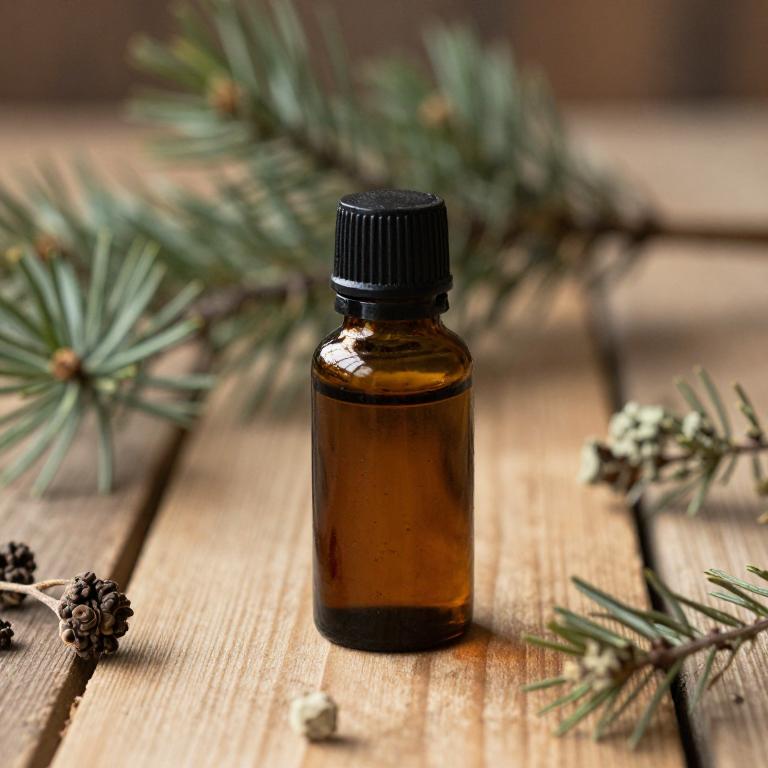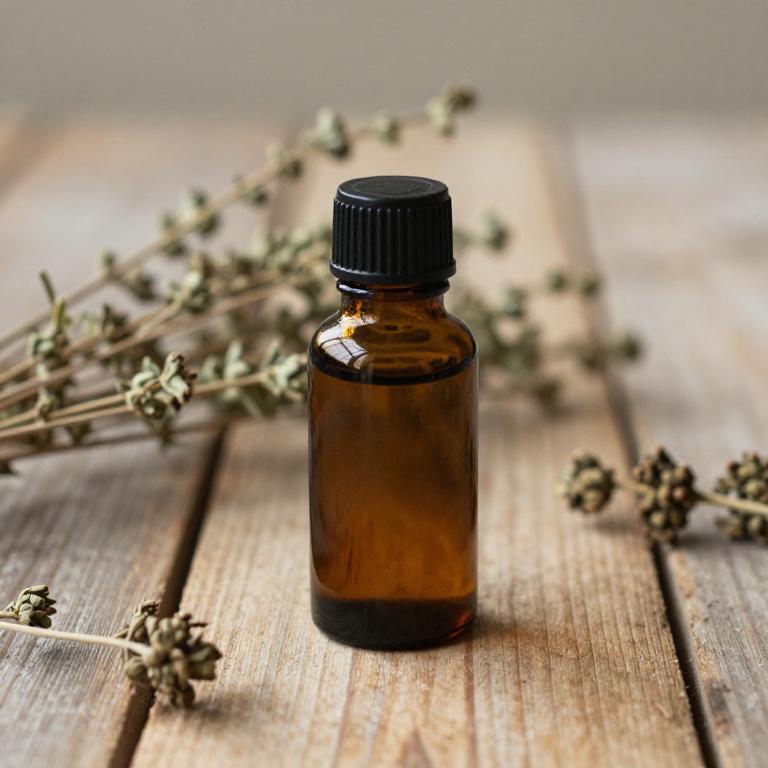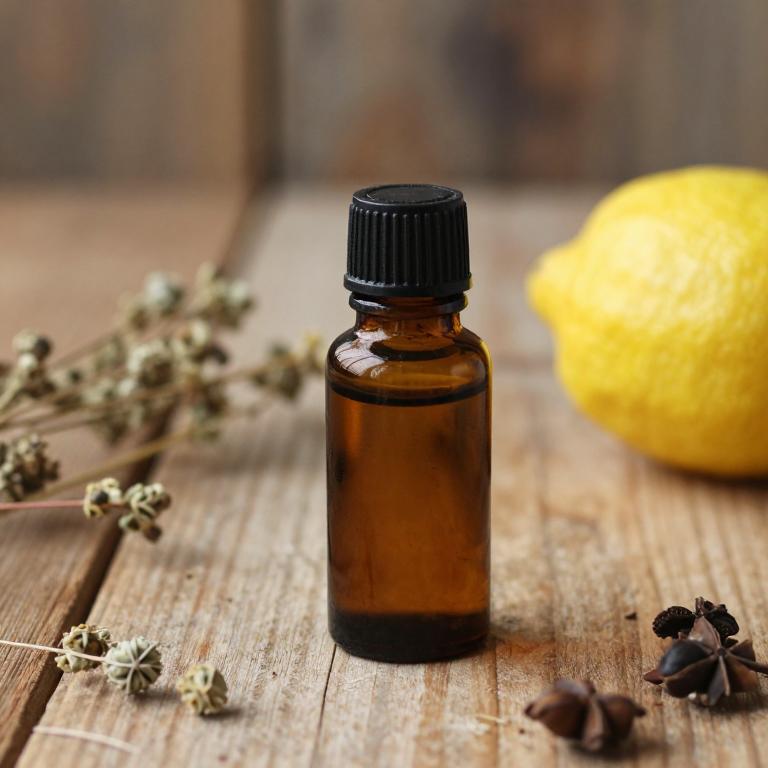10 Best Herbal Essential Oils For Phlegm

Herbal essential oils have been traditionally used to help alleviate symptoms associated with excess phlegm, such as congestion and respiratory discomfort.
Oils like eucalyptus, peppermint, and thyme are commonly recommended for their expectorant and decongestant properties. When diffused or applied topically, these oils can help loosen mucus and promote easier breathing. However, it is important to dilute essential oils properly before use, as they are highly concentrated and can irritate the skin or mucous membranes.
While they may offer some relief, they should not replace medical treatment for persistent or severe respiratory conditions.
Table of Contents
- 1. Eucalyptus (Eucalyptus globulus)
- 2. Thyme (Thymus vulgaris)
- 3. Scots pine (Pinus sylvestris)
- 4. Oregano (Origanum vulgare)
- 5. Peppermint (Mentha piperita)
- 6. Ginger (Zingiber officinale)
- 7. English lavender (Lavandula angustifolia)
- 8. Basil (Ocimum basilicum)
- 9. Lemon (Citrus limon)
- 10. Rosemary (Rosmarinus officinalis)
1. Eucalyptus (Eucalyptus globulus)

Eucalyptus globulus, commonly known as the Australian eucalyptus, is widely used in herbal medicine for its potent essential oil, which is particularly effective in alleviating symptoms related to respiratory conditions such as excess phlegm.
The oil contains compounds like cineole and limonene, which have antimicrobial and expectorant properties that help loosen mucus and reduce its thickness, making it easier to expel from the respiratory tract. When used in steam inhalation or topical applications, eucalyptus globulus essential oil can soothe irritated airways and promote clearer breathing. It is often incorporated into natural remedies for colds, coughs, and bronchitis due to its refreshing and invigorating aroma.
However, it is important to dilute the essential oil properly before use and consult with a healthcare professional, especially for individuals with asthma or other respiratory conditions.
2. Thyme (Thymus vulgaris)

Thymus vulgaris, commonly known as thyme, is a popular herb used in aromatherapy and herbal medicine for its potent essential oils.
The essential oil of thymus vulgaris contains compounds like thymol and carvacrol, which are known for their antimicrobial and expectorant properties. When used in diffusers or inhalation therapy, thyme essential oil can help loosen mucus and reduce congestion, making it beneficial for respiratory conditions involving excess phlegm. It is often recommended for relieving symptoms of colds, bronchitis, and sinus infections due to its ability to support respiratory health.
However, it should be used with caution and diluted properly to avoid skin irritation or allergic reactions.
3. Scots pine (Pinus sylvestris)

Pinus sylvestris, commonly known as Scots pine, produces a valuable essential oil that has been traditionally used for its respiratory benefits, particularly in helping to reduce phlegm.
The oil contains compounds such as alpha-pinene and beta-pinene, which possess expectorant properties that aid in loosening and expelling mucus from the respiratory tract. Its aromatic and warming qualities make it a popular choice in aromatherapy for relieving congestion and supporting healthy breathing. When used in steam inhalation or diffused in a room, the essential oil can help soothe irritated airways and promote clearer respiratory function.
However, it is important to use pinus sylvestris oil with caution, as it may cause skin irritation in some individuals, and it should be diluted before topical application.
4. Oregano (Origanum vulgare)

Origanum vulgare, commonly known as oregano, is a popular herb whose essential oil has been traditionally used for its potent medicinal properties.
The essential oil of oregano contains high concentrations of carvacrol and thymol, which are known for their antimicrobial and anti-inflammatory effects. When used in respiratory care, oregano essential oil may help to loosen mucus and reduce congestion, making it beneficial for individuals suffering from phlegm-related respiratory conditions. However, it is important to dilute the oil properly before use, as it can be quite strong and may cause skin irritation if applied undiluted.
Overall, oregano essential oil is a valuable natural remedy that can support respiratory health when used safely and appropriately.
5. Peppermint (Mentha piperita)

Mentha piperita, commonly known as peppermint, is a popular herb used in the production of essential oils that are often utilized for respiratory support.
The essential oil of peppermint contains potent compounds like menthol, which can help to soothe irritated airways and reduce the sensation of congestion. When used in steam inhalation or as a topical application, peppermint oil may help to loosen mucus and promote easier breathing. However, it is important to dilute the essential oil properly before use, as it can be irritating if applied directly to the skin.
While peppermint oil may offer some relief for symptoms associated with phlegm, it should not replace professional medical advice or treatment for persistent respiratory conditions.
6. Ginger (Zingiber officinale)

Zingiber officinale, commonly known as ginger, is widely recognized for its medicinal properties, including its potential benefits in alleviating respiratory conditions.
The essential oils derived from ginger contain compounds such as gingerol and zingiberene, which have anti-inflammatory and antispasmodic effects. These properties may help reduce mucus production and ease congestion associated with phlegm. When used in aromatherapy or as a topical application, ginger essential oil can support respiratory health by promoting clear breathing.
However, it is important to consult a healthcare professional before using ginger essential oils, especially for individuals with existing health conditions or those taking medications.
7. English lavender (Lavandula angustifolia)

Lavandula angustifolia, commonly known as English lavender, is widely recognized for its calming properties, but its essential oil also offers potential benefits for respiratory health.
The essential oil contains compounds such as linalool and linalyl acetate, which may help in reducing mucus production and promoting easier breathing. Some studies suggest that lavender essential oil can act as a mild expectorant, aiding in the removal of phlegm from the respiratory tract. When used in steam inhalation or diluted in a carrier oil, it may provide relief for individuals suffering from congestion and excess phlegm.
However, it is important to consult with a healthcare professional before using lavender essential oil for medicinal purposes, especially for those with existing respiratory conditions or allergies.
8. Basil (Ocimum basilicum)

Ocimum basilicum, commonly known as sweet basil, is a medicinal herb whose essential oil has been traditionally used for its respiratory benefits.
The essential oil of basil contains compounds such as eugenol, linalool, and methyl chavicol, which possess antimicrobial and anti-inflammatory properties. These properties make it potentially effective in helping to reduce mucus production and ease congestion associated with respiratory conditions like bronchitis or the common cold. When used in aromatherapy or steam inhalation, basil essential oil may support clearer breathing by soothing the airways and reducing phlegm buildup.
However, it is important to consult a healthcare professional before using essential oils, especially for individuals with underlying health conditions or during pregnancy.
9. Lemon (Citrus limon)

Citrus limon, commonly known as lemon, is a popular source of essential oils that are often used for their cleansing and expectorant properties.
The essential oil derived from lemon is known to help in reducing mucus buildup and loosening phlegm, making it beneficial for respiratory health. It contains compounds like limonene and citral, which have antimicrobial and anti-inflammatory effects that support respiratory function. When used in steam inhalation or diffused in the air, lemon essential oil can help clear nasal passages and ease breathing.
However, it should be diluted properly and used with caution, as it may cause skin irritation if applied directly.
10. Rosemary (Rosmarinus officinalis)

Rosmarinus officinalis, commonly known as rosemary, is a herb widely used in aromatherapy for its essential oils, which are known to support respiratory health.
The essential oil of rosemary contains compounds like cineole and camphor, which have expectorant properties that help loosen and expel phlegm from the respiratory tract. It is often used in steam inhalations or diffused in a room to ease congestion and promote clearer breathing. Additionally, rosemary essential oil may help reduce inflammation in the airways, making it a valuable natural remedy for those suffering from excessive mucus production.
However, it should be used with caution and diluted properly, as it can be irritating to some skin types when applied directly.